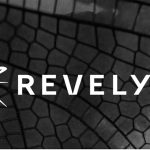The Adidas Group announced a strategic partnership with Swiss company Bluesign Technologies to further drive sustainable solutions in its global supply chain.
Bluesign Technologies is the well-established world leading provider of assessment tools for positive chemistry in the textile industry. The Bluesign system, focused on screening and managing chemical input at supplier level, brings multiple benefits such as the more responsible use of resources, the effective management of restricted substances, as well as the elimination of hazardous chemicals in the supply chain.
“For years, the Adidas Group has been running leadership programs in the area of chemical management,” says Frank Henke, Adidas Group VP Global Social & Environmental Affairs. “The partnership with Bluesign technologies will bring our programme to the next level.”
With this partnership, the Adidas Group suppliers across the globe will be able to access the bluefinder, a tool with information on sustainable textile chemistry for processes such as pretreatment, dyeing and finishing, resulting in the manufacturing of materials which are more sustainable. All materials produced will have to comply with rigorous tests to verify compliance with Bluesign criteria.
Additionally, chemical management on site will continue to be monitored through the Adidas Group environmental audits. In 2013, the company conducted 149 environmental audits at its suppliers’ factories.
“We are very pleased that one of the sustainability leaders in the industry is becoming a Bluesign® system partner,” says Peter Waeber, CEO Bluesign technologies. “We have been working with the Adidas Group over the last few months in order to develop an input chemical management strategy and are impressed by their comprehensive programme and expertise. The partnership is going to add value for both organizations.”
Additionally, the Adidas Group is today publicly committing to two additional best practices in the industry:
Driving chemical innovation
The Adidas Group has already committed to phase out the use of long-chain PFCs by no later than January 1, 2015. As a further step, the company commits to being 90% PFC free in its products as of June 15, 2014, and 99% PFC-free by no later than December 31, 2017.
Disclosure
For many years, the Adidas Group has taken a leadership approach in enhancing disclosure practices and transparency within its supply chain. This includes the active promotion of reputable public platforms such as the Institute of Public and Environmental Affairs (IPE) China Water Pollution Map and China Air Pollution Map. The Adidas Group will disclose 99% of the China-based “wet processes” on the IPE platform by the end of 2014. Subsequently, the company is committing to achieve the disclosure of 50% of all “wet processes” across its global supply chain by no later than December 31, 2015, and of at least 80% by no later than July 1, 2016, via the IPE Detox platform.
About the Adidas Group’s approach to sustainability
The Adidas Group’s sustainability strategy is rooted in the Group’s values performance, passion, integrity and diversity. It is built on the achievements and learnings from previous years, while taking into account the societal landscape and future global trends. The four pillars of the Adidas Group’s strategy are:
- People: We positively influence the lives of our employees, factory workers and people living in the communities where we have a business presence.
- Product: We find better ways to create our products mainly through innovation, increased use of more sustainable materials and efficiencies.
- Planet: We reduce the environmental footprint of both our own operations and our suppliers’ factories.
- Partnership: We engage with critical stakeholders and collaborate with partners to improve our industry.
The Adidas Group has been ranked by the Institute of Public and Environmental Affairs (IPE) as one of the four top-performing brands in the industry in China.
Specifically on chemical management, back in 1998, the company acted as a pioneer in the sporting goods industry when it adopted a comprehensive and detailed Restricted Substances Policy for product materials, prohibiting the use of chemicals considered as harmful or toxic. Since then, major initiatives have been taken to enhance the Adidas Group chemical management programme, as described on the corporate website.
For more information about the Adidas Group’s continuing efforts, visit http://www.Adidas- group.com/en/sustainability/managing-sustainability/general-approach/.














